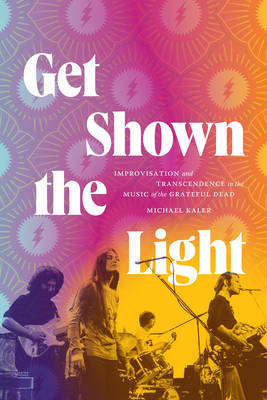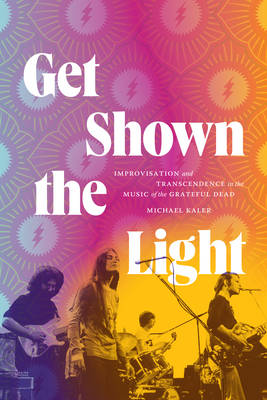
Je cadeautjes zeker op tijd in huis hebben voor de feestdagen? Kom langs in onze winkels en vind het perfecte geschenk!
- Afhalen na 1 uur in een winkel met voorraad
- Gratis thuislevering in België vanaf € 30
- Ruim aanbod met 7 miljoen producten
Je cadeautjes zeker op tijd in huis hebben voor de feestdagen? Kom langs in onze winkels en vind het perfecte geschenk!
- Afhalen na 1 uur in een winkel met voorraad
- Gratis thuislevering in België vanaf € 30
- Ruim aanbod met 7 miljoen producten
Zoeken
€ 164,95
+ 329 punten
Uitvoering
Omschrijving
Of all the musical developments of rock in the 1960s, one in particular fundamentally changed the music's structure and listening experience: the incorporation of extended improvisation into live performances. While many bands--including Cream, Pink Floyd, and the Velvet Underground--stretched out their songs with improvisations, no band was more identified with the practice than the Grateful Dead. In Get Shown the Light Michael Kaler examines how the Dead's dedication to improvisation stemmed from their belief that playing in this manner enabled them to touch upon transcendence. Drawing on band testimonials and analyses of early recordings, Kaler traces how the Dead developed an approach to playing music that they believed would facilitate their spiritual goals. He focuses on the band's early years, the significance of their playing Ken Kesey's Acid Test parties, and their evolving exploration of the myriad musical and spiritual possibilities that extended improvisation afforded. Kaler demonstrates that the Grateful Dead developed a radical new way of playing rock music as a means to unleash the spiritual and transformative potential of their music.
Specificaties
Betrokkenen
- Auteur(s):
- Uitgeverij:
Inhoud
- Aantal bladzijden:
- 304
- Taal:
- Engels
- Reeks:
Eigenschappen
- Productcode (EAN):
- 9781478020349
- Verschijningsdatum:
- 17/11/2023
- Uitvoering:
- Hardcover
- Formaat:
- Genaaid
- Afmetingen:
- 152 mm x 229 mm
- Gewicht:
- 616 g

Alleen bij Standaard Boekhandel
+ 329 punten op je klantenkaart van Standaard Boekhandel
Beoordelingen
We publiceren alleen reviews die voldoen aan de voorwaarden voor reviews. Bekijk onze voorwaarden voor reviews.









